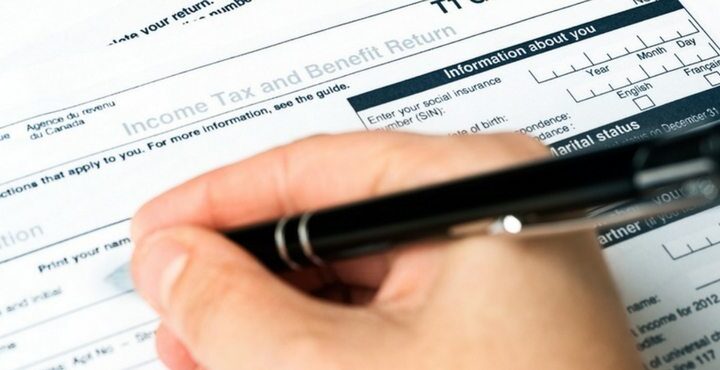If you are injured on the job or develop an occupational disease as an employee, you may be eligible for workers’ compensation benefits. Accidents can happen, and even if you were injured by someone intentionally, you may be able to receive benefits. Workers’ compensation is a no-fault system, so no one party must incur the costs of the benefits that are paid.
Overview of the Workers’ Compensation Program
Workers’ compensation programs are designed to help employees with work-related injuries and protect them from undue financial hardships.
Federal government employee programs are administered by the Labour Program, and most other entities are administered by the various provincial and territorial governments. Depending on your province of residence, workers’ compensation benefits are paid by either the Workplace Safety and Insurance Board or Workers’ Compensation Board.
Overview of Workers’ Compensation Benefits
Benefits that can be paid out to employees who were injured on the job can include temporary payments for lost income or permanent payments paid out following the final settlement of a claim.
- Temporary payments begin when the injury or illness starts, and usually continue until the employee recovers.
- There is a two-week waiting period before benefits could begin.
- The payments could also stop after the WCB conducts an evaluation and determines that a full recovery is unlikely.
If the WCB determines that the employee is permanently injured and not able to return to work or another suitable occupation, the WCB can issue permanent payments after a final settlement of claim. A final settlement of claim could also be made if the employee is able to work, but not at the employee’s prior salary level.
Benefit payments can also cover:
- rehabilitation training
- equipment
- clothing
- auxiliary care
- other medical expenses such as prescription drugs and chiropractic expenses
Workers’ Compensation and Taxes
Generally, temporary benefits are considered to be earnings.
While the income is offset with a deduction before the taxable income amount is calculated on your tax return, the amount of the benefit is included for determining eligibility in such programs as CCB and GST/HST quarterly payments.
There are a number of benefits that are not considered earnings from a personal tax standpoint. These include payments used to cover injury or illness-related expenses, such as:
- medical expenses and expenses associated with renting or purchasing prostheses
- chiropractic or physiotherapy treatments
- auxiliary care expenses to facilitate day-to-day activities
- dispensing fees
- tuition and training fees
Although the WCB determines at a later date whether or not the injury or illness is permanent, this does not in any way alter the fact that temporary payments received are considered earnings for employment insurance benefit purposes.
If you have applied for workers’ compensation benefits and are waiting for a reply, you might be able to receive Employment Insurance sickness benefits while you are waiting for a reply or a ruling from the WCB. You have to sign an agreement that you repay the benefits if you are not entitled.
How to report the WCB income?
Income from the WCB will be reported in Box 10 of the T5007 slip. report the amount on line 14400 of your Income Tax and Benefit Return to calculate your eligibility for any other federal or provincial benefits. Since this income is not taxable, you will deduct it on line 25000.
Repayment of Workers’ Compensation Benefits
In some cases, you might be Paid twice from for the same period. Your employer might pay you the WCB before your application with the program is approved. If you receive the same WCB payments later from the program, you will have to repay the benefits to your employer. While you are completing your income tax return, deduct the same amount of your benefit (shown in box 10) on line 25000. This deduction allows your workers’ compensation benefits to be deducted from your income. This ensures that you are not taxed on both amounts.
Report your employment income — Box 14 of your T4 slips — on line 10100 of your return as normal. You can find the amount of your workers’ compensation benefit that was paid as a portion of your income on your T4 slip. Report this on line 22900. While this amount is not subject to tax, you are still required to report it.
If you anticipate receiving workers’ compensation benefits, you can repay this income to your employer in the preceding year. The repayment amount is reported in Box 77 of your T4. In this case, it may be possible to report a deduction on line 22900 of your return (as other employment expenses).
How Other Tax Benefits Are Affected
Other benefits paid to you which include the Canada Child Benefit, GST/HST credit, old age security, guaranteed income supplement and other tax credits are affected by the reporting of the workers’ compensation benefit that you have received. All non-taxable benefits are used when calculating other such benefits. The amount you received in workers’ compensation benefits can affect the other benefit amounts previously mentioned if you are qualified to receive them. This is why your workers’ compensation benefit must be reported correctly on your personal income tax return.
TurboTax free products help you claim the WCB and the repayment deductions you are entitled for. However, you might want to consider TurboTax Assist & Review if you need further guidance, and get unlimited help and advice as you do your taxes, plus a final review before you file. Or, choose TurboTax Full Service* and have one of our tax experts do your return from start to finish.
*TurboTax Full Service is not available in Quebec.











